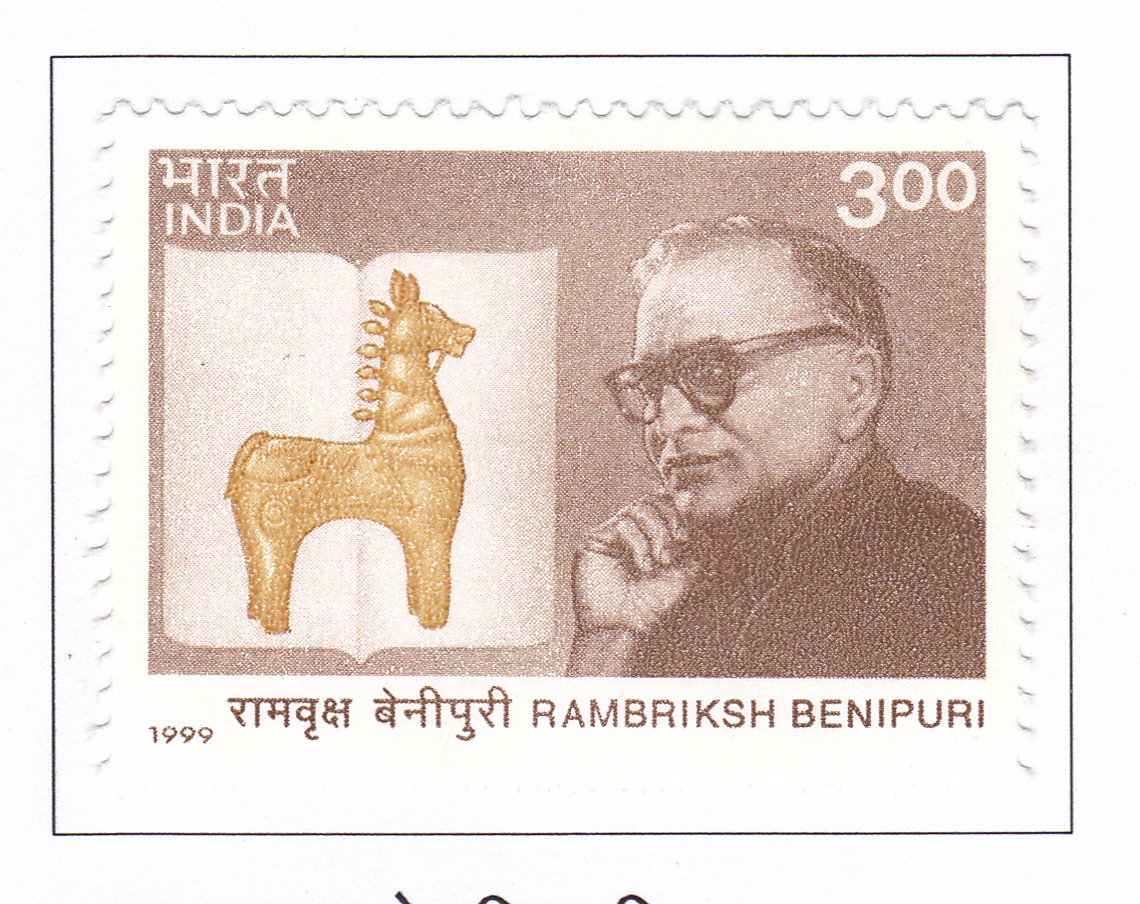Linguistic Harmony Of India – Rambriksh Benipuri (1899-1968)

Technical Data
| Stamp Set | Linguistic Harmony Of India |
|---|---|
| Date of Issue | September 14, 1999 |
| Denomination | Rs. 3 |
| Perforation | comb 13½ x 13 |
| Printer | Security Printing Press, Nashik |
| Watermark | No Watermark |
| Colors | Multicolor |
| Catalog Codes |
Michel IN 1702 Stamp Number IN 1761 Yvert et Tellier IN 1469 Stanley Gibbons IN 1864 |
| Themes | Authors | Commemoration | Famous people | Horses | Literary People (Poets and Writers) | Literature | Optical Instruments | Statues |
Table of Contents
Rambriksh Benipuri (1899-1968) and Linguistic Harmony in India
Rambriksh Benipuri was a prominent Hindi writer, freedom fighter, and social reformer whose life and work epitomized the spirit of linguistic harmony in India. Born in the village of Benipur in Bihar in 1899, Benipuri played a significant role in both India’s literary renaissance and its struggle for independence. His literary works and political activism emphasized unity across regional and linguistic divides, promoting the idea of cultural and linguistic inclusiveness.
Advocacy for Nationalism and Linguistic Unity
Benipuri was deeply involved in the Indian nationalist movement, participating in the Non-Cooperation Movement and later the Quit India Movement. He firmly believed that India’s diverse linguistic and cultural identities should coalesce into a unified national spirit. His writings in Hindi were not just limited to literature but also served as powerful tools for social and political awakening. Through his works, he advocated for unity across languages and regions, stressing that all Indian languages held equal importance in the national discourse.
Role in Promoting Hindi as a Link Language
Although Benipuri was a strong proponent of Hindi, he also promoted respect for all Indian languages. He saw Hindi as a bridge language that could connect people across different regions while respecting their linguistic identities. His efforts were aimed at fostering a spirit of inclusiveness, where Hindi would unite rather than dominate other languages.
Literary Contributions
Rambriksh Benipuri’s literary works, such as his essays, short stories, and plays, often dealt with themes of social reform, national integration, and the empowerment of marginalized communities. He highlighted the role of common people in India’s freedom struggle and how literature can serve as a medium to bridge linguistic and cultural gaps. His works carried the message that India’s strength lies in its unity in diversity, and that respecting each other’s languages and traditions is essential for building a cohesive national identity.
Legacy of Linguistic Harmony
Benipuri’s legacy continues to resonate in contemporary India. He is remembered not just for his contributions to Hindi literature, but also for his vision of linguistic harmony. He encouraged people to rise above regional and linguistic differences to embrace a common national identity, making him a key figure in promoting linguistic unity during a time when India was seeking to assert its independence and identity.
His work stands as a reminder that India’s linguistic diversity is not a barrier but a rich resource for unity and cultural dialogue.
